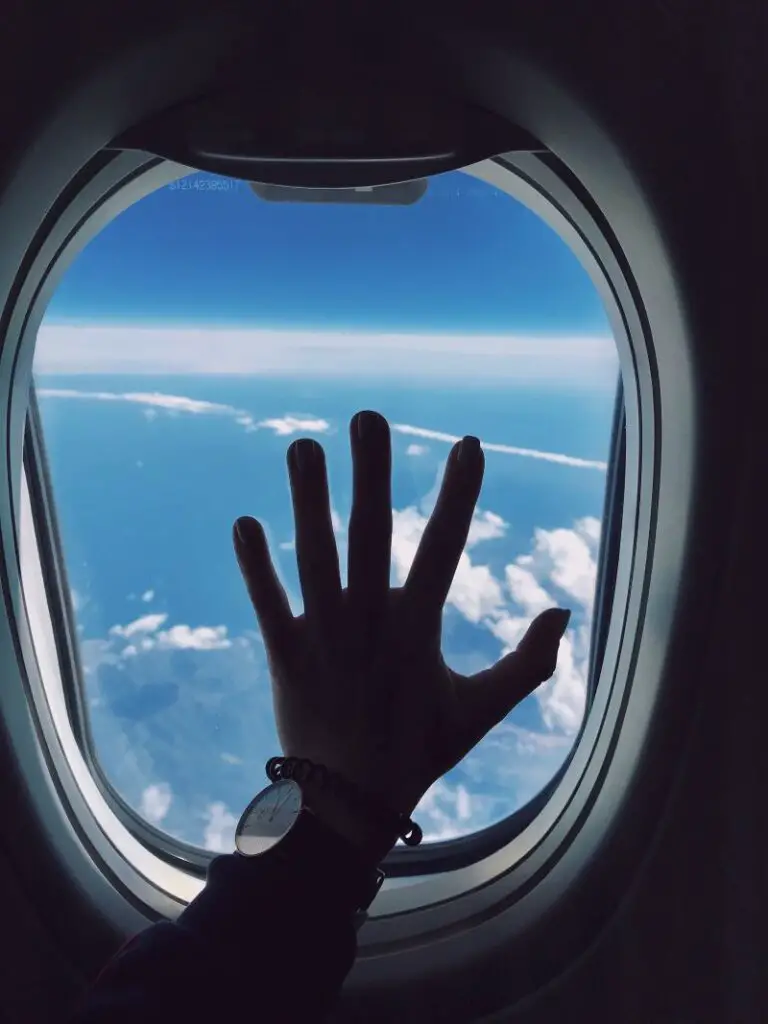8 Proven Ways to Overcome Holiday Travel Anxiety
Holiday travel can be stressful for anyone, neurodiverse or neurotypical. There are so many things beyond a person’s control, including inclement weather, heavy traffic, flight delays and cancellations, and crowds of people everywhere you look.

Changes in schedule, being stuck in a car on long holiday road trips, or in a plane that is delayed for hours are stressful enough. And then, needing to interact with your extended family can create additional stress for autistics (read more about that topic here).
While holiday travel and travel anxiety in general can be overwhelming, with the right preparations and coping strategies, individuals (neurotypical or neurodiverse) can survive and even thrive during the season of joy. After all, the holidays are supposed to be the most wonderful time of the year and memorable time spent with loved ones.
Here are some tips for minimizing travel anxiety and maximizing good times for individuals on the spectrum through organization, communication, and practicing self-care.
8 Tips When Planning Holiday Travel with Individuals with Autism for Less Stress
Advanced planning is crucial for autistic travelers during the hectic holiday season. Avoid last-minute holiday road trips to reduce travel anxiety and start talking about plans ahead of time.
- Book flights, hotels, and car rentals as early as possible to get the best fares and availability. Try to schedule travel during less busy times like early morning or red-eye flights. Choose direct routes when possible.
- When booking hotels, request quiet rooms away from elevators, ice machines, and other noise. Call ahead to ensure rooms have sensory-friendly features like low lighting or white noise machines.
- If driving, plan the routes for holiday road trips ahead of time. Schedule ample time for stops and build in plenty of wiggle room in case of traffic delays.
- Pack a bag with essentials weeks in advance. Include medication, assistive devices, comfort items and ample snacks.
- Create a detailed written itinerary and share with family. This is important if you are traveling alone or without your usual traveling companions. Include addresses, contact information, directions, and the schedule breakdown.
- Stick to consistent holiday travel patterns year-to-year whenever possible. Returning to familiar places and routines reduces anxiety.
- Enroll in TSA Pre-Check and Global Entry to speed airport security.
- Watch the video produced by TSA Cares on the screening process for individuals with autism so you are familiar with the process if you are a new traveler.
5 Ways to Reduce Travel Anxiety by Bringing Comforts from Home
Travel means stepping out of your familiar, controlled environment. Bringing comforting items from home can make new surroundings feel safer and more secure.
When you have autism, things can feel and smell different, and many of us are tactile, and those sensory considerations do matter.
Here are five suggestions on reducing anxiety when you are traveling somewhere for the holidays. They work particularly well when taking holiday road trips.
The advice holds true for traveling at any time, anywhere, for individuals on the spectrum.
- Pack or ship favorite blankets, clothes, books and stuffed animals. Their familiar textures and smells evoke feelings of home.
- Bring noise-cancelling headphones, earplugs and sunglasses to deal with sensory overload.
- Pack fidget toys, chews and stress balls for settling anxiety.
- Carry your special interest items like sketchbooks, instruments or tech gadgets to enjoy during downtime.
- Bring safe, preferred snacks to ensure you have foods you enjoy.
Having these small comforts from home can make unfamiliar travel settings less intimidating.
Holiday Travel and Sticking to Routines
Travel and holidays often disrupt normal routines. Sticking to regular schedules as much as possible reduces stress.
While just being somewhere else is certainly a disruptor to routines and beyond your control, there are things that you can totally control.
By doing so, you will feel better and more empowered, which follows the stoicism philosophy of self-control and mind matters.
Here are routines I try and stick with, regardless of where I am at.
- Wake up, eat meals and go to bed at your usual times. Adjust to time zone changes gradually.
- Build physical activity into each day like short exercise videos or walks.
Stay hydrated and limit junk food. - Work moments of meditation, deep breathing, stims or special interests into the daily schedule.
- Ask family if you can participate in holiday activities for a fixed time period before taking a break.
- Politely decline some events or outings if needed to maintain healthy rest and routine.
- Use a personal planning aide like a schedule board or app to stay organized.
Though some routine adjustments will be required, maintaining familiar patterns provides stability amidst holiday chaos.
Preparation for Sensory Challenges

Here are tips for preparation:
- Pack sensory items like scented fidgets, textured toys, and headphones to self-regulate when overwhelmed.
- Wear clothing free of scratchy tags or seams that could irritate. Opt for soft, stretchy, tag-less material.
- Consider allergy medication if visiting relatives have pets. Familiarize yourself with host’s homes to identify possible sensory trouble spots.
- At holiday meals, ask for your food separate to control portions, textures and tastes. Bring your own preferred snacks or dishes.
- Carry a weighted lap pad or blanket to provide calming pressure during hectic travel. They are particular beneficial for extended holiday road trips, when you’ll have hours in the car.
- Plan solo walks or quiet room breaks during extended family gatherings when overstimulated.
No matter how carefully you prepare, sensory overload still may occur. Having tools and knowing your limits allows you to respond quickly and effectively.
Communicate Your Needs to Reduce Holiday Anxiety
Holiday travel requires communicating needs to airport staff, hotel clerks, TSA agents and family members. Here are tips:
- Carry cards explaining you are autistic and may need assistance or extra time. Consider download and completing a TSA disability notification card.
- Politely advise family of your sensory and social capacity so they understand when you need to take breaks.
- Set clear expectations about communication methods, like requesting phone calls instead of constant texts.
- Ask hosts about their holiday plans and house environment so you can anticipate situations that may be challenging.
- Pull hosts aside privately to walk through their homes and identify possible sensory problem areas.
- Request seating near exits at holiday gatherings so you can discretely step away if overstimulated.
Explaining your needs clearly and respectfully means loved ones can better support you. But know you have the right to say no or set limits to protect your wellbeing.
Plan Downtime to Destress After Traveling
No matter how skilled an autistic traveler you become, holiday trips will likely leave you depleted. Plan ample downtime and self-care after you return.
- Take time off work if possible. Catch up on rest without an alarm. Ease back into routines gradually.
- Eat nourishing meals, hydrate frequently and move your body mindfully with walks, stretches or exercise.
- Spend time outdoors or open windows to clear stagnant energy from travel.
- Stim, fidget and decompress however your body asks. Lean into special interests that energize you.
- Limit social interaction to recharge. Say no to any activities beyond your bandwidth.
- Use weighted blankets, gentle music, diffused essential oils or other sensory tools to self-regulate.
- Treat yourself to calming experiences like massages, nature outings, crafting or reading.
You devoted major mental and physical energy to holiday travel. Honor what your mind and body require to come back into balance and congratulate yourself for navigating yourself through the stresses of the holidays.
Hopefully, you enjoyed your time together with loved ones, which is the goal!
Additional Planning Tips to Help with Holiday Travel
Meticulous planning helps holiday travel go smoothly for individuals with autism. Some additional strategies include:
- Ship gifts and bulky items like comforters to your destination ahead of time so you don’t have to transport them.
- Schedule any medical appointments before traveling. Pack double the needed medication and medical supplies.
- Arrange transportation like airport shuttles, ride shares or car rentals in advance. Review driving routes.
- Pack a visual schedule of the trip and review it frequently as the travel dates approach.
- Set up automatic bill payments for the time you’ll be away. If you are living independently Put mail on hold or ask someone to collect it.
- Pack clothing suitable for various weather conditions and activities like formal dinners or religious services.
- If flying with a service animal, contact the airline ahead of time to plan accommodations. Bring the animal’s paperwork.
- Install translation apps if traveling internationally. Download maps and translators for on-the-go use.
Thorough planning and logistical preparation empowers autistic travelers and prevents stress-inducing surprises. Building organization skills takes practice but pays dividends.
In-Transit Coping Strategies for Holiday Travel When You Have Autism

- Pack familiar snacks, games, books and other boredom-busters for waiting in lines, traffic jams and delays.
- Carry a printed backup itinerary and contact list in case technology fails. Pack portable chargers and international plug adapters.
- Bring calming sensory tools like fidget cubes and textured fabric swatches to self-regulate during unpredictable moments.
- Scope out quiet corners, family bathrooms or nursing rooms to decompress in crowded airports and bus stations.
- Politely ask airline staff for pre-boarding or transport assistance navigating terminals if needed.
- Request seat assignments in exit rows, bulkheads or aisles to allow more space for stims. Aisle seating also makes quick escapes easier if overwhelmed.
- Use white noise apps and noise-cancelling headphones to block stimuli during flights or long drives. Stay hydrated.
- Schedule Lyft or Uber vehicles in advance versus waiting in crowded taxi lines after arriving. Make sure you have downloaded the apps and know how to use them and how to link payment information to make the transportation easier.
With resilience strategies, autistic travelers can adapt more easily when plans go awry.
Navigating Family Gatherings When You Arrive
Busy holiday parties and family events also deserve planning. (Read my related blog on ways to keep from feeling overwhelmed.)
- Ask hosts ahead about attendee numbers, schedules and sensory details to know what to expect. Offer to help with setups or cooking to stay comfortably occupied pre-event.
- Arrive early to scout furniture arrangements and exits. Change where you sit if more comfortable spots are available.
- Set up a designated quiet room to retreat to when overstimulated. Equip it with comfort items.
- Request sensory-friendly food options that meet your tastes and textures.
Bring preferred snacks. - Use noise-cancelling headphones and sunglasses to manage sound and lighting.
- Ask if you can skip traditions like telling stories aloud if too anxiety provoking. Suggest alternatives you can participate in like showing photos.
- Plan discreet signals like tapping a host’s shoulder to indicate you need a break without drawing a crowd.
With strong coping methods, autistics can handle busy holiday social functions without becoming overwhelmed. Discreetly excusing yourself when hitting limits is perfectly acceptable. The key is to always remember to be polite and respectful.
The holidays can be a treasured time to connect with family. While travel poses challenges for individuals with autism, careful planning and self-compassion can make visits doable and meaningful. Maintain routines, communicate needs and schedule extensive after-care.
Most importantly, listen to your limits and do not hesitate to put self-care first during demanding holiday trips. With the right approach, autistic individuals can successfully handle holiday travel, minimize stress, and share in the joy of the season.
Related holiday articles by My Autism Mind
- Holiday Survival Guide to Mingling with Family Extended Members
- Crowds Phobia and Autism: How to Tame Anxiety Overload
- Autism and Holidays: Why Special Occasions Can Be Challenging
- Heartwarming Ways of Respecting Others’ Religious Holidays and Traditions
- Food for Picky Eaters: 17 Holiday Hacks to Know
- Autism Family Support: 5 Ways For A Happy Household
- Autism Volunteer Opportunities: 5 Ways Helping Others Fosters Acceptance